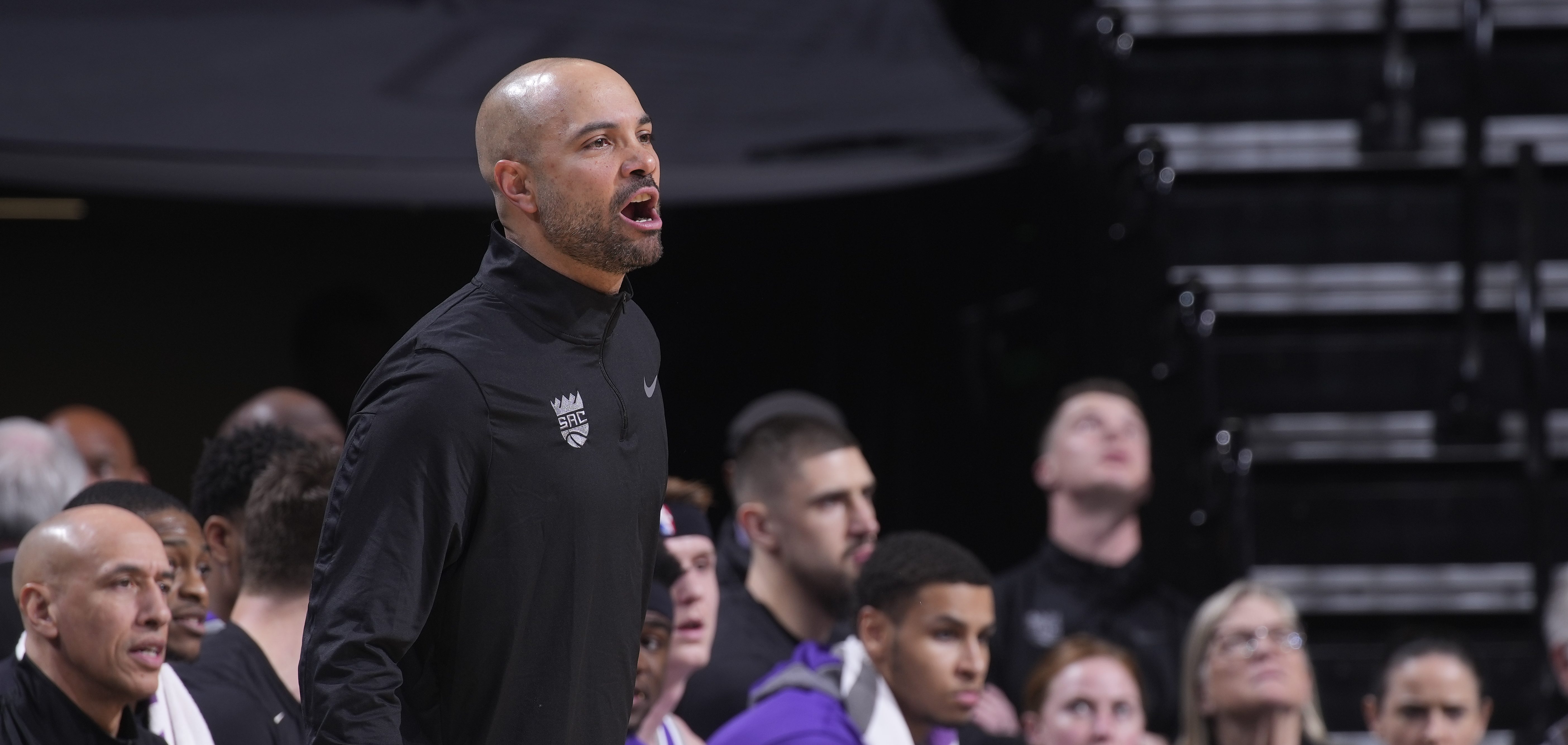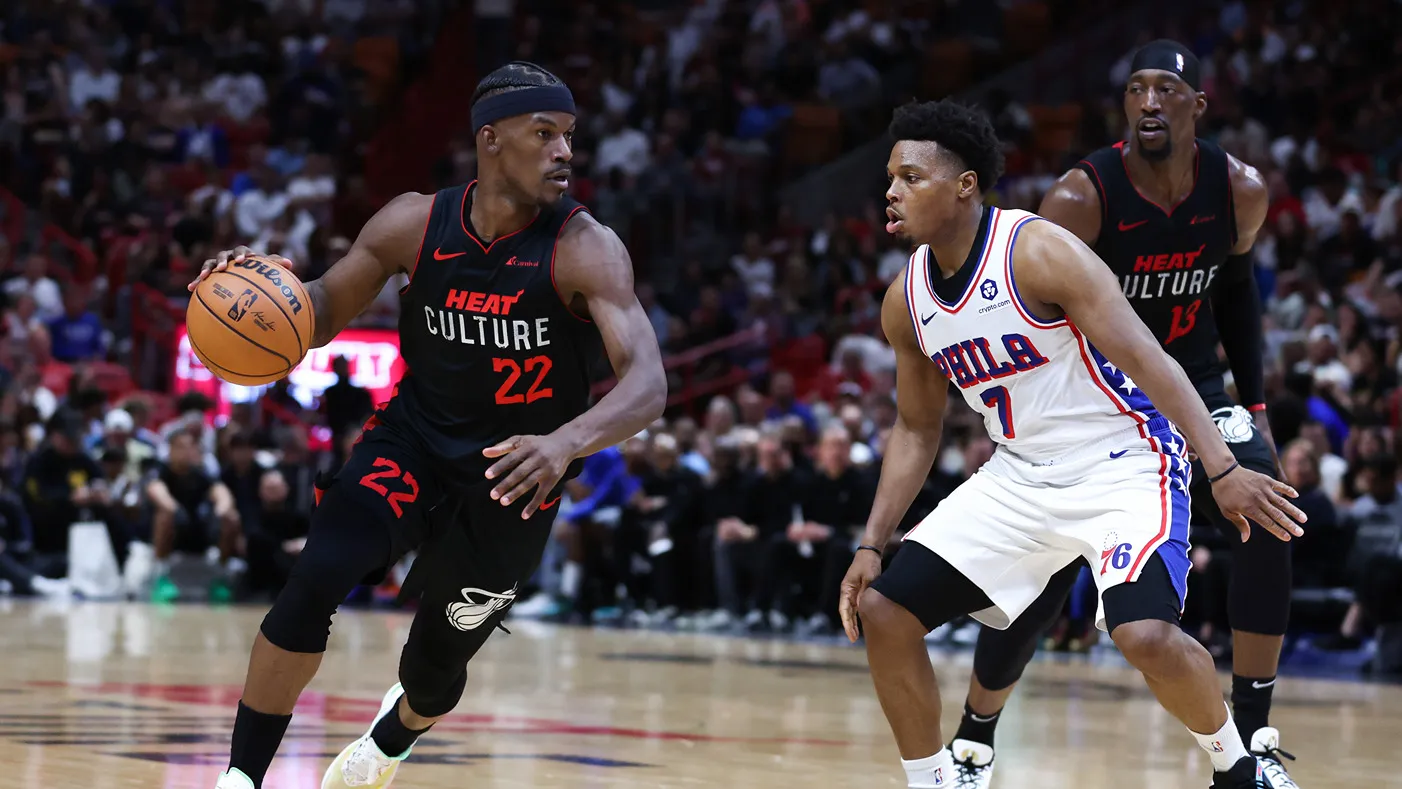The Sixers were not completely healthy Monday night, but they were happy to welcome back one of their All-Stars.
Ben Simmons returned after a four-game absence with an illness and recorded 12 points, four assists, three steals and two blocks in a 121-90 Sixers win over the Thunder.
The Sixers had lost all four games that Simmons missed. Oklahoma City has now dropped 14 consecutive contests.
Stay in the game with the latest updates on your beloved Philadelphia sports teams! Sign up here for our All Access Daily newsletter.
Joel Embiid posted 21 points, five rebounds and three steals for the Sixers, who are a game behind the Eastern Conference-leading Nets at 40-21.
Danny Green (left hip recovery) and Mike Scott (left hip soreness) were sidelined for Monday’s game.
The Sixers held their annual Pride Night to celebrate the LGBTQ+ community.
“No. 1, education,” Sixers head coach Doc Rivers said before the game. “Open-mindedness. Inclusion. We need to learn just to understand each other and be more tolerant to each other. I think it’s important to have all these nights. Pride Night is one of them.”
Next up for the Sixers is a two-game mini-series vs. the Hawks that begins Wednesday night.
Here are three observations on their win over the Thunder:
NBA
Turnover-forcing Simmons returns
Rivers was pleased to have Simmons back, and not only because of his defensive talents.
“We missed him a ton,” he said pregame. “I was talking with another coach in the league. He called me and said, ‘If anyone asks you again about how important Ben is on offense, just show them the last four games.’ We talk about his defense and it’s obviously — especially against Milwaukee, pretty pronounced — but where we missed him the most was offensively. The three-pointers that we make and get, a lot of them are due to Ben. Our pace was gone, as well. When you miss a guy like Ben or Joel or Tobias (Harris), they show their importance when they’re not there, for sure.”
Within 30 seconds, Simmons assisted on a Furkan Korkmaz jumper with a fast-break drive-and-kick dish. Even without a jump shot that worries opponents, Simmons draws so much attention when he attacks the paint.
Matisse Thybulle and Simmons teamed up for some of their usual open-floor fireworks at the end of the first half.
The opposition entered Monday’s game having turned the ball over 19.4 percent of the time when Simmons and Thybulle were on the court, per Cleaning the Glass. As a point of reference, the league-worst Cavs have a 15.9 turnover percentage.
The Sixers as a team forced a season-high 30 turnovers.
Useful reps for Hill with second unit
One downside of the Sixers’ recent spate of injuries was that George Hill wasn’t able to acclimate to situations the team plans to place him in during the playoffs.
His role Monday was closer to what he can expect for the postseason. Hill and Thybulle were the Sixers’ first two substitutes off the bench, with Rivers eventually using an all-bench lineup by the end of the first quarter.
Lineups with no starters seem unlikely to feature for the Sixers in the postseason, but we imagine Hill will indeed play substantial minutes alongside Shake Milton and Dwight Howard. The more time he can spend with other second-unit players over the Sixers’ final 11 games, the better.
Hill received 14 minutes Monday, posting two points, three assists and two steals. It will also be interesting to monitor how he fares with players that will close games for the Sixers, including Simmons and Embiid. Hill’s dependable defense and level-headed decision-making mean he’ll be a candidate to finish out games in the postseason.
“I thought he was the difference-maker when he came in, just defensively," Rivers said. “You could still see his rhythm offensively is not great yet but defensively, man, he is so good. … Just listening to him on the floor tonight, directing Shake and directing those guys where to be, man, he’s good. He’s going to be good for us. You can feel it, you can see it.”
Of course, a matchup with a team on a double-digit losing streak didn’t lend itself to end-of-game reps, and the priority Monday appeared to be giving the bench a chance to further develop chemistry.
Scott’s absence gave Anthony Tolliver another shot to play in the Sixers’ rotation. He had his best sequence yet as a Sixer early in the second quarter when he blocked a Jaylen Hoard layup, then drained a three-pointer on the Sixers’ next possession.
Tyrese Maxey did not appear until the start of the fourth period, though Rivers indicated pregame that he expects the 20-year-old will play for the Sixers in the postseason. Maxey scored 11 points on 5-for-5 shooting. Paul Reed was another garbage-time standout with 10 points, nine rebounds and two blocks.
“I don’t know if he’s going to be in the regular rotation or not, but I have no doubt that he’ll play in the playoffs,” Rivers said of Maxey. “I’m fully confident of that. I’m fully confident in him. We’re going to have them all ready and then when the playoffs start, we’ll see who will play. But I would have no hesitation putting him in.”
Embiid plays through shoulder issue
After missing Saturday’s loss to the Bucks with right shoulder soreness, it appeared Embiid might sit Monday, too. His status was in question until approximately 30 minutes before tip-off.
Embiid’s shoulder did not cause any noticeable problems with his shooting stroke. He was efficient (6 for 10 from the floor, 7 for 9 from the foul line) and in command against 21-year-old Moses Brown.
Guarding Embiid is such a challenging task for a youngster like Brown, in part because of how good he is at exploiting any aggression. If a defender closes out without total balance, he’ll slide past him toward the rim. If his man bites on a pump fake, he’ll lean in and gladly accept two free throws.
Embiid grabbed at his shoulder following a collision in the third quarter. It’s clear he’s below 100 percent, although it’s likely safe to assume he wouldn’t have been cleared if he was dealing with a potentially serious injury.
“I’ve learned long ago, until someone tells me, one of the trainers, I’ve gotten out of that guessing game," Rivers said. “It’s our trainers' and our medical people’s job to tell me, ‘Hey, get him out’ or he shouldn’t play.
“I literally don’t get involved in it. I think it’s a bad place for a coach to be, because we would tell him to play all the time, the coaches. I think it’s a lot smarter to allow people with far better knowledge than me to tell me, ‘He’s good, he can play. He can keep going.’ And it made it easier for me, as well.”


